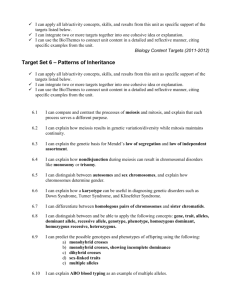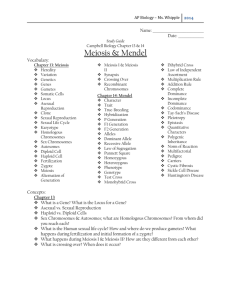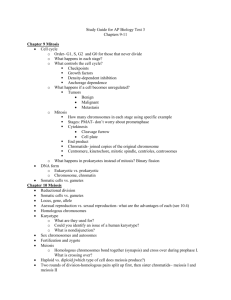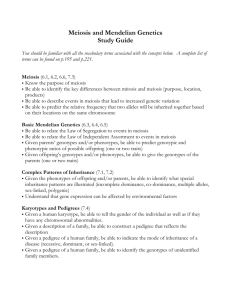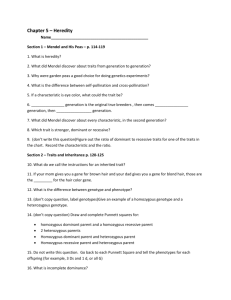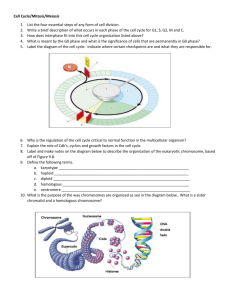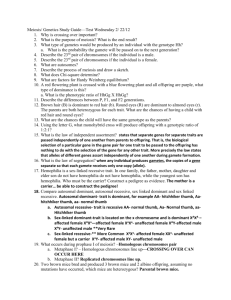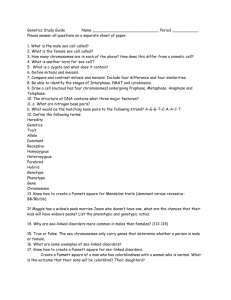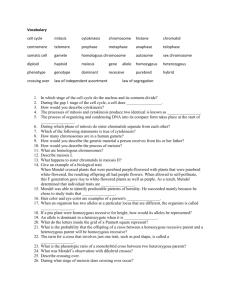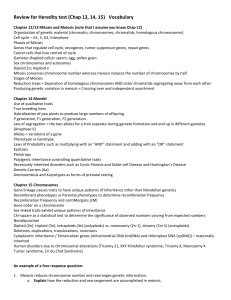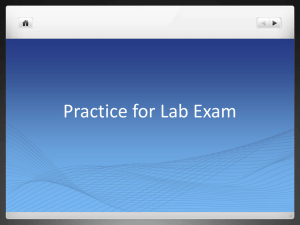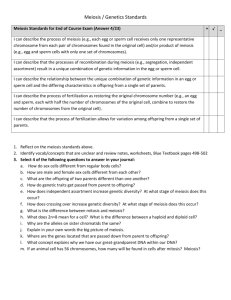Name: Period: ______ Date: Page #: ______ Checklist of Things I
advertisement
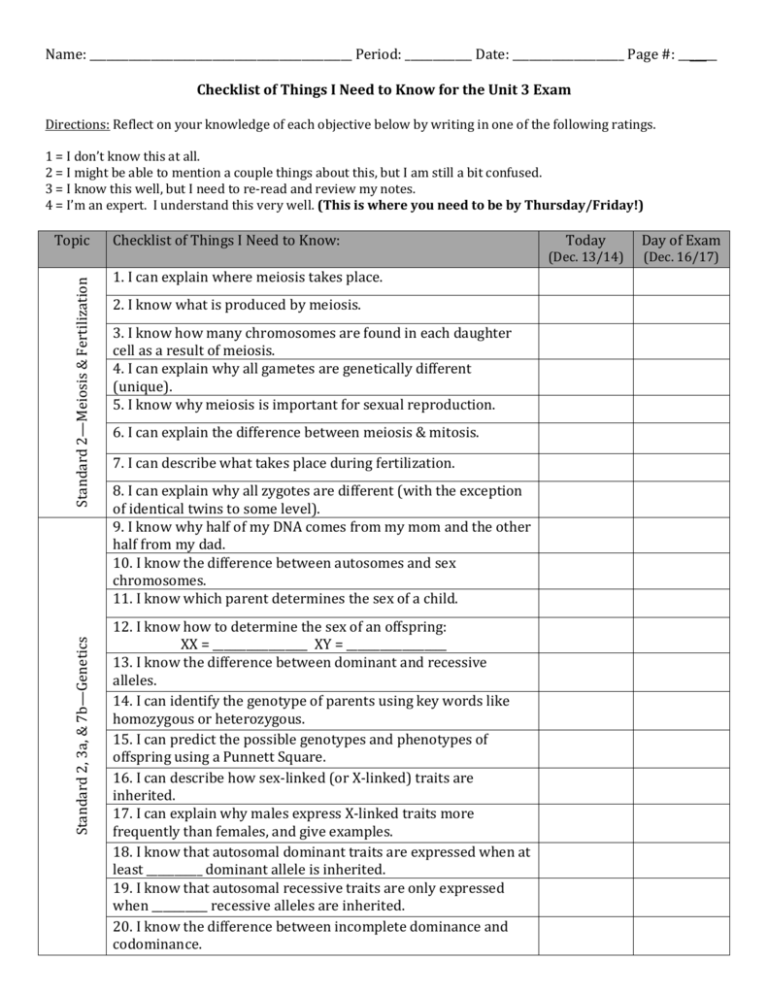
Name: _______________________________________________ Period: ____________ Date: ____________________ Page #: _______ Checklist of Things I Need to Know for the Unit 3 Exam Directions: Reflect on your knowledge of each objective below by writing in one of the following ratings. 1 = I don’t know this at all. 2 = I might be able to mention a couple things about this, but I am still a bit confused. 3 = I know this well, but I need to re-read and review my notes. 4 = I’m an expert. I understand this very well. (This is where you need to be by Thursday/Friday!) Standard 2, 3a, & 7b—Genetics Standard 2—Meiosis & Fertilization Topic Checklist of Things I Need to Know: 1. I can explain where meiosis takes place. 2. I know what is produced by meiosis. 3. I know how many chromosomes are found in each daughter cell as a result of meiosis. 4. I can explain why all gametes are genetically different (unique). 5. I know why meiosis is important for sexual reproduction. 6. I can explain the difference between meiosis & mitosis. 7. I can describe what takes place during fertilization. 8. I can explain why all zygotes are different (with the exception of identical twins to some level). 9. I know why half of my DNA comes from my mom and the other half from my dad. 10. I know the difference between autosomes and sex chromosomes. 11. I know which parent determines the sex of a child. 12. I know how to determine the sex of an offspring: XX = _________________ XY = __________________ 13. I know the difference between dominant and recessive alleles. 14. I can identify the genotype of parents using key words like homozygous or heterozygous. 15. I can predict the possible genotypes and phenotypes of offspring using a Punnett Square. 16. I can describe how sex-linked (or X-linked) traits are inherited. 17. I can explain why males express X-linked traits more frequently than females, and give examples. 18. I know that autosomal dominant traits are expressed when at least __________ dominant allele is inherited. 19. I know that autosomal recessive traits are only expressed when __________ recessive alleles are inherited. 20. I know the difference between incomplete dominance and codominance. Today (Dec. 13/14) Day of Exam (Dec. 16/17) Sample Practice Questions Multiple Choice Practice 1. Which of the following best describes meiosis? A. It is carried out in all tissues that require cell replacement. B. It occurs only in the cells in the reproductive structures of the organism. C. It happens in all tissues except the brain and spinal cord. D. It is the first stage of mitosis. 2. How many human egg cells will be formed from one cell that undergoes meiosis? A. 0 B. 2 C. 4 D. 8 3. Somatic cells from an ancient human were discovered in a preserved state. What would be the best way for a scientist to learn whether the cells came from a female? A. determine if two X sex chromosomes are present B. determine whether an extra copy of an autosome is present C. count the total number of chromosomes in the cell nucleus D. count the total number of chromosomes in the cell nucleus and divide by two 6. A heterozygous tall pea plant and a homozygous short pea plant have offspring. Which of these genotypes would not occur in their offspring? A. B. C. D. TT Tt tt All of the above would occur. Short Answer Practice Compare and contrast the following by filling out the Venn diagram: autosomal disorders vs. sex-linked disorders autosomal disorders sex-linked disorders 4. The union of egg and sperm results in A. B. C. D. zygotes. gametes. somatic cells. autosomes. 5. Albinism is caused when a child inherits two recessive alleles from his or her parents. If one parent is a carrier and the other is homozygous dominant, what is the probability that the child will be a carrier? A. B. C. D. 25% 50% 75% 100% Define each of these terms in your own words: Zygote: Gamete: Somatic cells: Autosomes:
